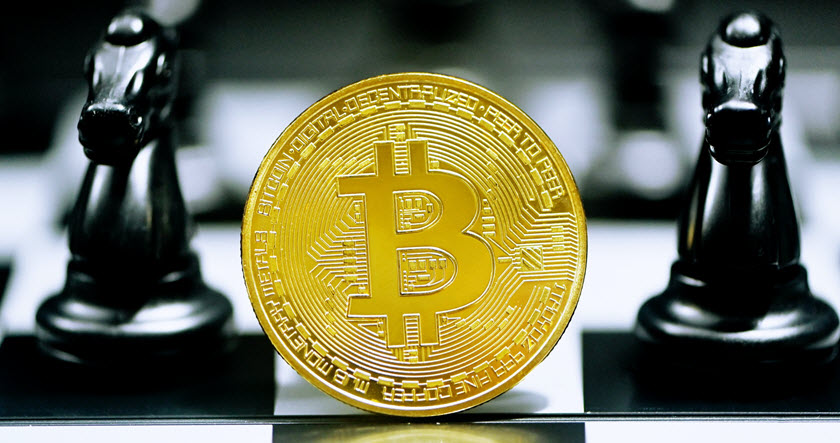Given the choice, it’s almost always better to own an asset rather than a derivative of it.
For example, there is a considerable amount of tumult in the finance sector going on right now over the Basel agreement‘s attempts to tether gold derivatives to physical gold bullion. And given the many comparisons between gold and bitcoin, it’s an interesting comparison considering that the bitcoin derivative market is coming of age.
Wait, what’s a derivative?
A financial derivative is, in its most basic sense, a bet on price movement for some underlying asset. There are about a million different kinds of derivatives, the most common you may have heard of: puts, calls, futures, options, swaps etc.
When you buy a derivative, its value changes based on the performance of an underlying asset. That’s why we call it a bet on price movement. And derivatives do have practical economic benefits!
Miners and farmers can use futures to guarantee delivery of a given commodity on a given date at a given price. Futures buyers lock in a specific price; futures sellers who take the other end of the contract lock in a fixed profit margin. You can see how that’s beneficial to both parties.
Where derivatives start to become less economically useful, and more destabilizing, is when they’re used for pure speculation. Bloomberg’s Matt Levine coined a phrase back during the GameStop meme-stock craze earlier this year: “YOLOing short-dated out-of-the-money call options.” Translated into English, that means:
Making short-term bets that a stock will go WAY WAY up which is really a long shot but YOLO [you only live once]!
Let’s not kid ourselves. That’s not investing.
Assets vs. derivatives
The rise of the Bitcoin derivatives market has shown just how different investing in derivatives can be from investing in the actual asset. The first Bitcoin ETFs are going to face hurdles right out of the gate.
After a lengthy standoff with the Securities and Exchange Commission (SEC), ProShares finally launched its Bitcoin Strategy ETF (BITO). The SEC’s primary and stated concern, and the reason why it shut down so many crypto ETF applications, are concerns over regulation.
So, ProShares did a smart thing: they pivoted and instead of buying bitcoin (unregulated), they said they’d buy bitcoin futures (regulated by the SEC). And that worked! According to CoinDesk,
SEC Chair Gary Gensler indicated he believes futures-based products might provide stronger investor protections due to the laws under which they operate.
Good show, ProShares, well done.
There’s one small problem…
Remember how we were saying owning derivatives isn’t the same as owning the underlying asset? The ProShares ETF will be subject to a phenomenon known in the futures market as “contango” (which, in all of finance, is absolutely the most fun word to say). The ETF buys futures, which last for a month. They’ll have to pay a lot for 30-day futures. As those 30 days pass, the contracts will be worth less and less — and least on the day of expiration, when ProShares will have to sell them and buy more. (Morningstar explains it well.) The oil market is just one of many where contango is commonplace.
So does that make bitcoin ETFs a bad idea? Not in the slightest. The launching of the CBOE and CME bitcoin derivatives in 2017 was huge for the crypto market. Even with a “futures middleman” for the time being, crypto ETFs like ProShares, Valkyrie, Invesco and VanEck are likely to be seen as an even greater stepping stone, and all of these should go live before the end of the year.
It’s going to bring in an enormous amount of capital from investors on all sides, including those that might have little familiarity with crypto or even a need for such familiarity. It will further establish the asset in mainstream finance and move it away from “enthusiast” fringes.
HODLers don’t need a derivatives market
Compared to bullion investors, cryptocurrency investors have it easy.
Bullion is heavy, and requires transportation, storage space and (if you’re smart) security. In contrast, buying cryptocurrencies directly is just a few clicks or a phone call away. Hot wallets are everywhere, and specialty dedicated-hardware cold wallets have never been more affordable. The days of hard drive crashes wiping out crypto investors’ life savings have been over for a while now.
Bitcoin isn’t West Texas Intermediate crude oil in 42-gallon barrels. It’s not a bushel (the equivalent of 4 pecks, or 8 dry gallons lol) of soft red winter wheat that might sproud on you, or get infested with rats or ergot fungus.
Yet just as in the case of gold, and certainly in the case of bitcoin, there is no replacement for owning the real thing. Just as in the case of gold, bitcoin ETF owners will by and large circumvent purchasing the actual asset just to minimize perceived hassle when investing. It’s a good thing, then, that digital IRAs are a hassle-free way of gaining true ownership of bitcoin even without necessarily knowing all the ins and outs of the market. And so long as they understand that bitcoin is a long-term investment, digital IRA owners don’t need to worry about losing money, whether through contango or any other complex financial peculiarity.
So join me in applauding the launch of the ProShares Bitcoin Strategy ETF, welcoming all the new investors into the cryptosphere, and then getting back to stacking sats.






